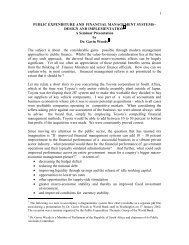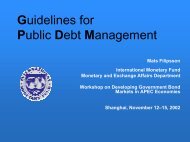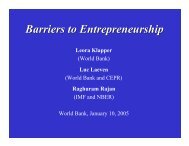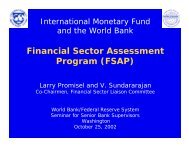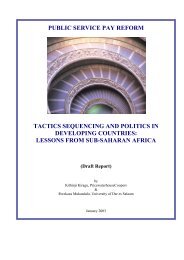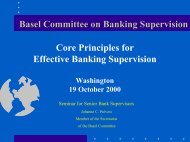CORRUPTION ASSESSMENT: MOZAMBIQUE - World Bank
CORRUPTION ASSESSMENT: MOZAMBIQUE - World Bank
CORRUPTION ASSESSMENT: MOZAMBIQUE - World Bank
You also want an ePaper? Increase the reach of your titles
YUMPU automatically turns print PDFs into web optimized ePapers that Google loves.
Channeling resources through unified budget. Since more than half of aid is channeledthrough donor projects and common funds in the line ministries, there is little incentivefor government to engage in politically difficult decision processes over resourceallocation. Instead ministers prefer to negotiate additional resources directly with donorsand, thus, the government is absolved of the need to exercise leadership in resourceallocation.While USAID’s predominantly project-based assistance does not fit within a GBSframework and is unlikely to do so in the near to medium term, it does presentopportunities for increasing the effectiveness of GBS support by addressing the demandside of accountability—through support of civil society and other stakeholders who canmonitor the budget and hold the government accountable.Shift attention from project and micro to sectoral and macro concerns. Another stepthat may help alter incentives in favor of more responsive and responsible use ofresources is to shift new commitments and supervision from project financing to commonfunds at sectoral levels, which would encourage line ministries to assume greaterleadership of the policy, planning and budgeting processes in their own sectors. Second,greater efforts need to be made to reduce the proportion of external assistance that is offbudget,so that the government has more complete information on the resources at itsdisposal and how these resources are used. In addition, new training programs should gobeyond the ongoing accounting-level reforms in public financial management to targetcapacity development in the methodologies that can help decision-makers betterformulate budget content.Empower civil society, the National Assembly and other independent oversightbodies. More fundamentally, without a Mozambican constituency for change, capacitydevelopment will not be enough, as commitment to pro-poor priorities and the broaderpublic interest is likely to be tempered by the more narrow “predatory” interests of theleading families that constitute the politico-business elite. To some extent, donors can actas a “proxy” restraint on the elite in the absence of strong internal checks and balances.Much more important in the long run will be the development of internal demand forimproved budget policy and performance. This could be fostered through an effort tointroduce systems of feedback from the population, such as public hearings on projectdevelopment and monitoring, publication of recurrent cost prices, and efforts to buildcivil society organizations.A crucial development will be the emergence of a more effective National Assembly,with resources and a structure for proper scrutiny of the executive. At a deeper societallevel, will be the empowerment of the masses, including the poor, so that they have thecapacity to obtain access to information and ideas, organize in support of their rights andgive voice to their concerns, and thereby influence government policy and performance.External assistance could provide support of dissemination efforts on budget availabilitiesfor different programs, at grassroots levels, establishment of feedback vehicles on budgetuse (e.g. scorecard reviews of provision of selected public services), and training ofparliamentarians on budget review and tracking based on experiences in other countries.FINAL REPORT 31


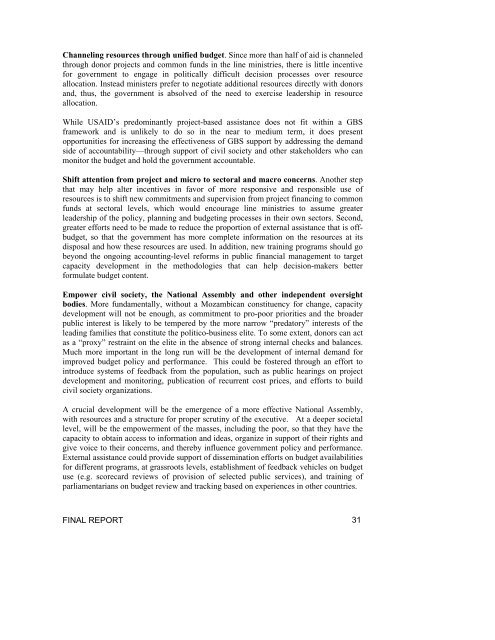
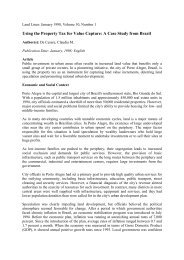

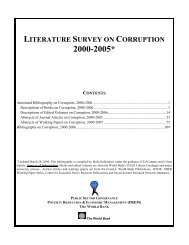
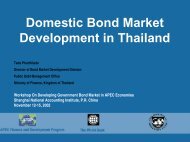
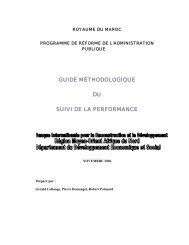
![Budget Execution: Overview [PDF 453K]; Bill Dorotinsky - World Bank](https://img.yumpu.com/47844909/1/190x143/budget-execution-overview-pdf-453k-bill-dorotinsky-world-bank.jpg?quality=85)
